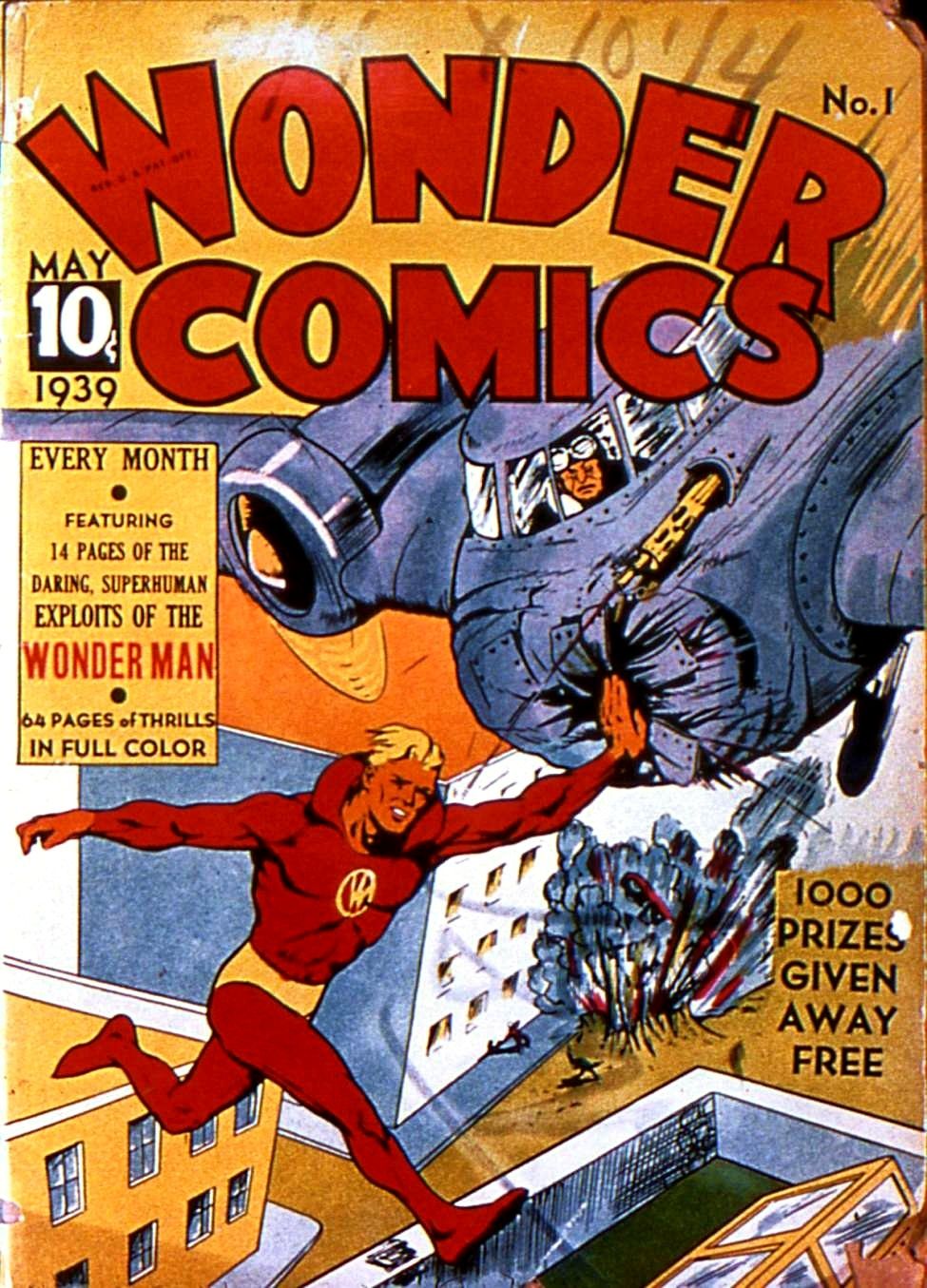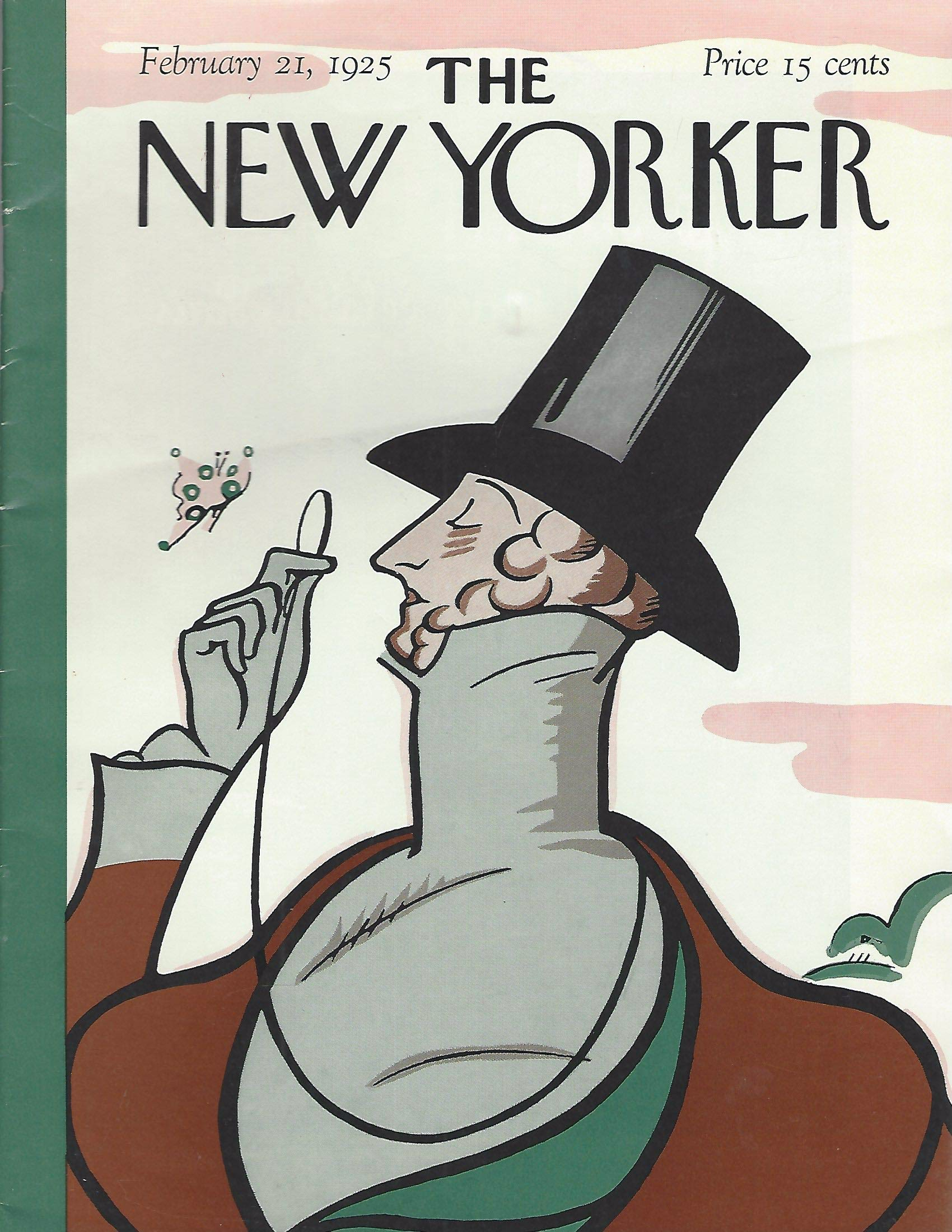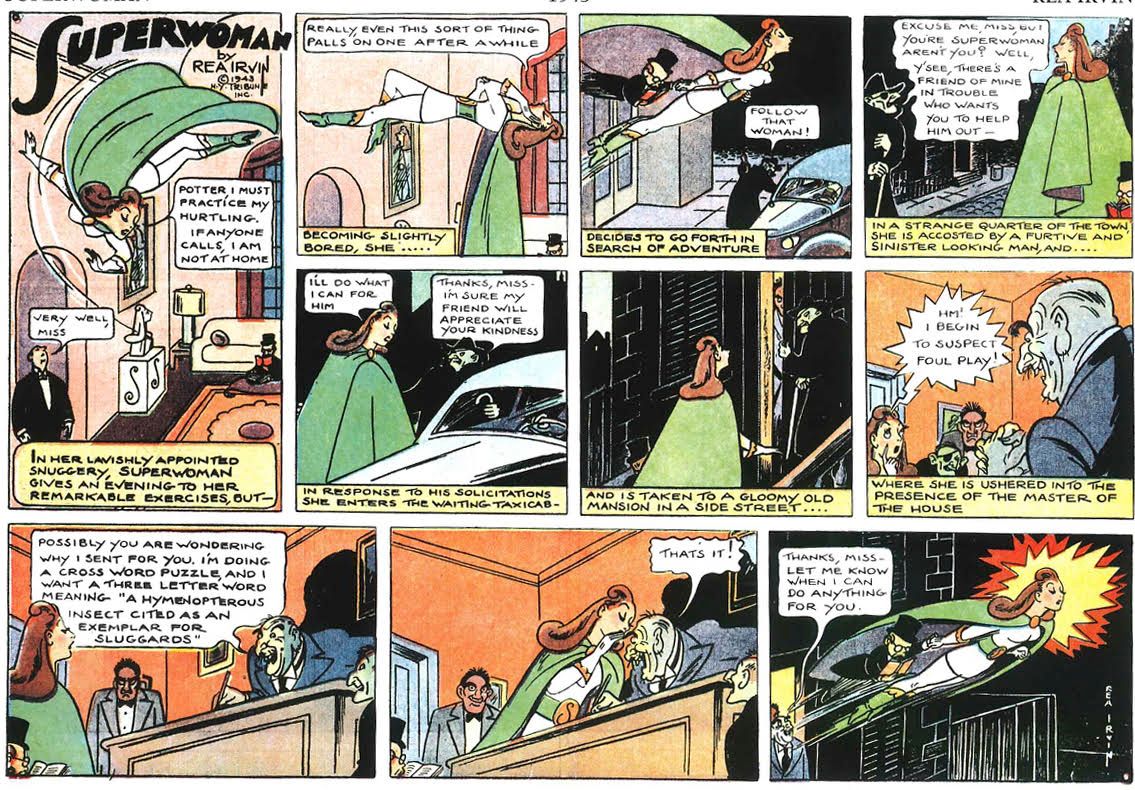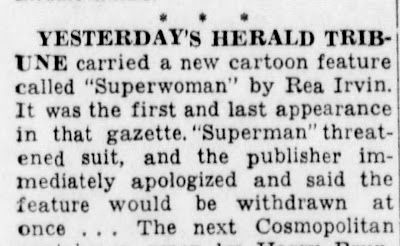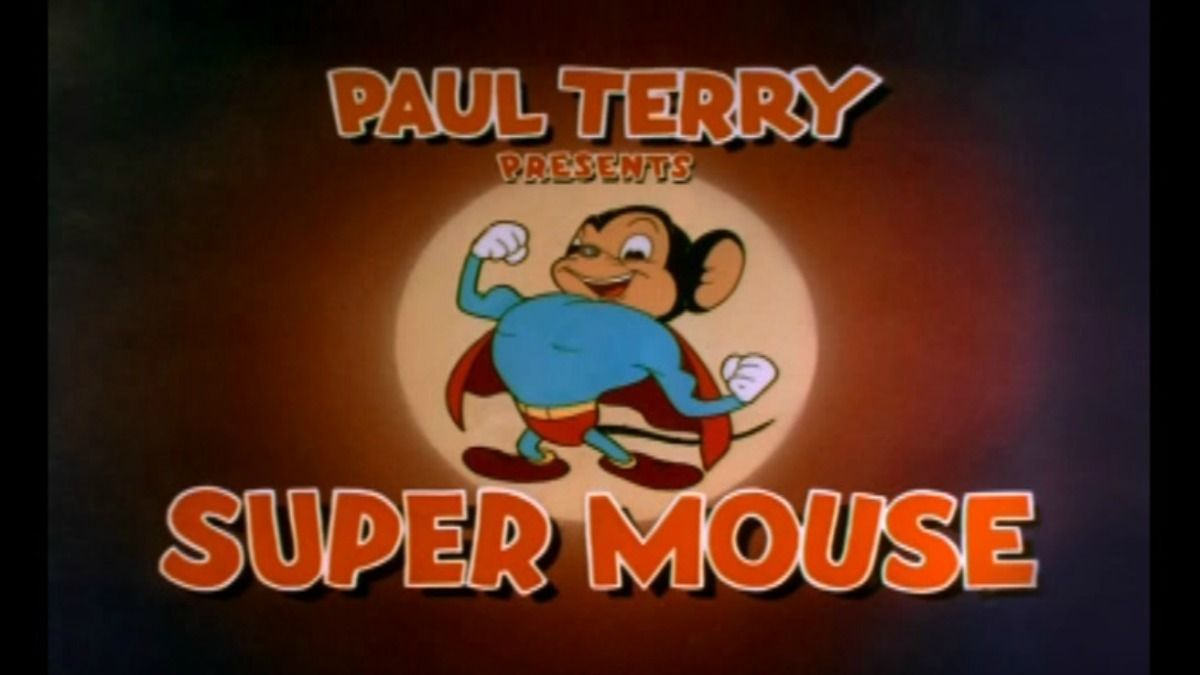DC’s Quickest Ceasing of an Infringement of Its Super-Intellectual Property

Summary
- DC quickly shut down a rival Superwoman comic strip after just a single day over trademark issues.
- Rea Irvin, known for magazine art, ventured into superhero genre with a whimsical Superwoman in 1943.
- National beat others to trademark Superwoman name in 1941, leading to a swift shutdown of the comic strip.
Welcome to the 922nd installment of Comic Book Legends Revealed, a column where we examine three comic book myths, rumors and legends and confirm or debunk them. In the first legend of this installment, we take a look at how DC cut off a rival Superwoman comic strip after just a single day.
In 1938, Action Comics #1 came out and the comic book world would never be the same. As soon as other publishers realized how much money that there was in comic books, they rushed to put out their own versions of Action Comics‘ star character, Superman. One of the earliest comic book companies that launched as a competitor to National Comics (now DC) was Fox Feature Syndicate, led by Victor S. Fox. At the time, a rather new business venture had been launched called the comic book packaging studio. A comic book packaging studio would write and draw an entire comic book for you. You would own the characters, but they would write and draw them, and you only had to publish the comics and take in the cash. Of course, you also had to pay them beforehand.
The top comic book packaging studio at the time was Eisner-Iger (Will Eisner and Jerry Iger). The company really existed on the back of Will Eisner, one of the most creative people in the history of comic books. Not only was he a phenomenal artist, but he was a brilliant creator of comic book ideas. This was good, since he had to try to launch so many at once to meet the demand. Fox, though, specifically asked Eisner to rip off Superman as close as he could get and so Fox launched his company with Wonder Comics, starring Wonderman…
National quickly got an injunction, and they eventually went to trial. Fox lost (Will Eisner famously claimed that he told the truth during the trial, and admitted that Fox had asked him to rip Superman off. He did not actually do that). National was then embolded to threaten nearly every other possible threat to its superhero characters (including a huge stretch over a character being “based” on Batman).
So, an injunction stopping Wonderman appearing in the second issue of Wonder Comics was pretty quick by National (Fox still managed to get Wonder Comics #2 out on time sans Wonderman, which is impressive), but there was an even QUICKER legal strike by National a couple of years later, when they got a Superwoman comic strip shut down in a DAY!
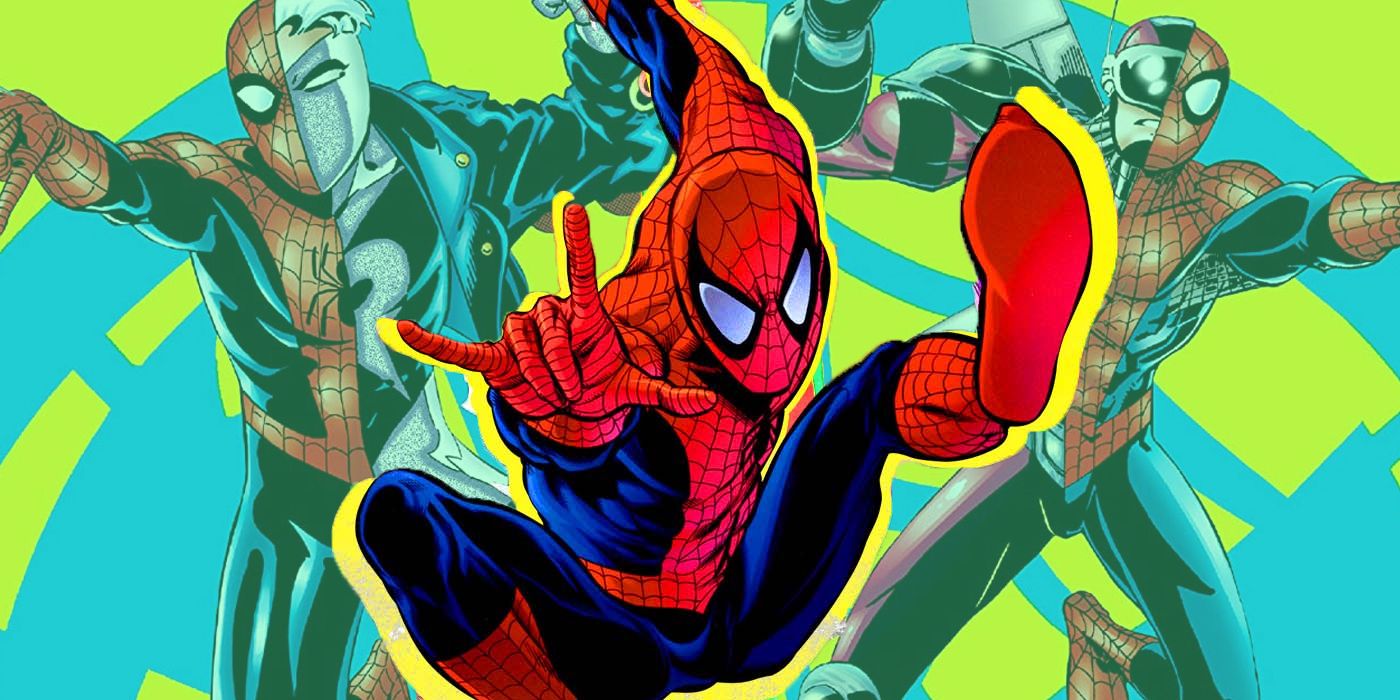
Were Spider-Man’s Alternate Identities Always Meant to Become the Slingers?
In the latest Comic Book Legends Revealed, find out whether Spider-Man’s “Identity Crisis” was always intended to result in the Slingers
What was the Superwoman comic strip?
In 1925, New Yorker magazine launched, one of the most acclaimed magazines of the 20th Century, and the head of the magazine, Harold Ross, was having a hard time figuring out what he wanted the cover of the first issue to be. He ultimately turned to Rea Irvin, the artist who was the first employee of the magazine, and who was basically the magazine’s art director at that point, and asked him for a cover piece that “would make the subscribers feel that we’ve been in business for years and know our way around.”
Irvin came up with a cariacture of a dandy, later named Eustace Tilley in some early issues of the magazine that did joking “behind the scenes” bits about the magazine and Tilley…
I mention this mostly to establish that Rea Irvin had some extreme artistic bona fides by the 1940s, so it’s fascinating to see that HE even got into the superhero game (well, sort of, at least) in 1943, when he debuted a new comic strip called Superwoman for the Tribune syndicate…
That is just an OUSTANDING first comic strip. Irvin’s art is spectacular, and the whole endeavor is so off-beat and fun. I’d really have loved to have seen more from this comic strip. Alas, it was not to be….
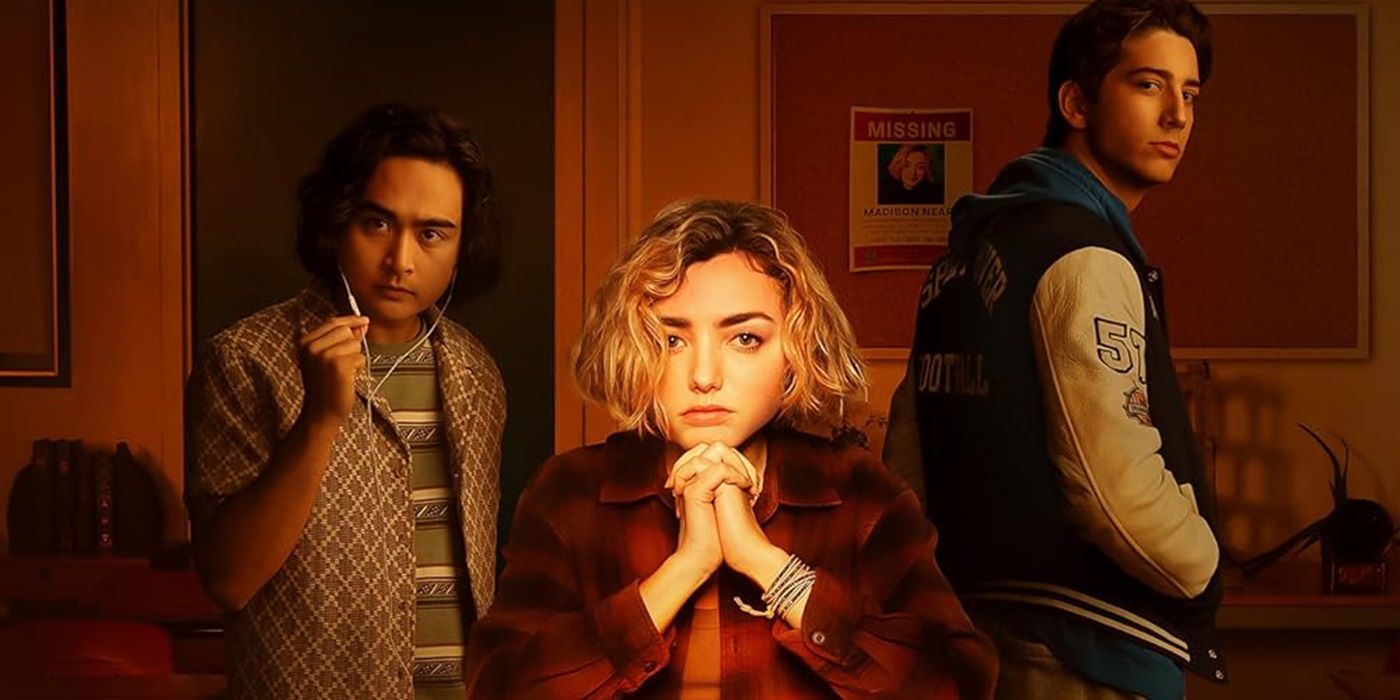
Is School Spirits Based on an Unpublished Graphic Novel?
In the latest Comic Book Legends Revealed, learn the surprising comic book origins of the hit Netflix series, School Spirits
How did National get the Superwoman comic strip shut down so quickly?
The very next day, a piece ran explaining that we’d never see Superwoman again…
The interesting thing is that it wasn’t like there hadn’t been OTHER “Super” characters by this point, like Super Mouse (later changed to Mighty Mouse)…
However, National had an ace up its sleeve with Superwoman. As my pal, Daniel Best, pointed out on his blog (check it out to see the actual trademark form!), National was pretty sure that somebody would come out with a Superwoman eventually, so it beat people to the punch, and registered a trademark on the name in 1941, using a phony ashcan comic to “publish” to get the rights to the name.
So while there was a good argument that Superwoman could have been protected from being an infringement on Superman’s copyright, there was no argument that this Superwoman comic strip didn’t violate National’s Superwoman trademark, and so Tribune knew it had no leg to stand on with the strip, so it just dropped the strip after a single installment.
It’s really fascinating looking back at those early days, and just marveling over how long it took National to make a legal move against Fawcett’s Captain Marvel character. It’s not that I think Captain Marvel was necessarily a ripoff of Superman (although apparently that WAS what Jack Kirby and Joe Simon were told to do when they drew an early Captain Marvel issue), but the fact that National went so hard after ever new Superman-like character, and waiting only until Captain Marvel started to appear in movies before going after Captain Marvel just seems like a poor piece of strategy.
Thanks again to my pal Daniel Best for his excellent piece on Superwoman!
Check out a Movie Legends Revealed!
In the latest Movie Legends Revealed – Did a judge basically force Whoopi Goldberg to do a dinosaur buddy cop movie?
Be sure to check out my Entertainment Legends Revealed for more urban legends about the world of film and TV. Plus, Pop Culture References also has some brand-new Entertainment and Sports Legends Revealeds!
Feel free to send suggestions for future comic legends to me at either cronb01@aol.com or brianc@cbr.com.
Source link

